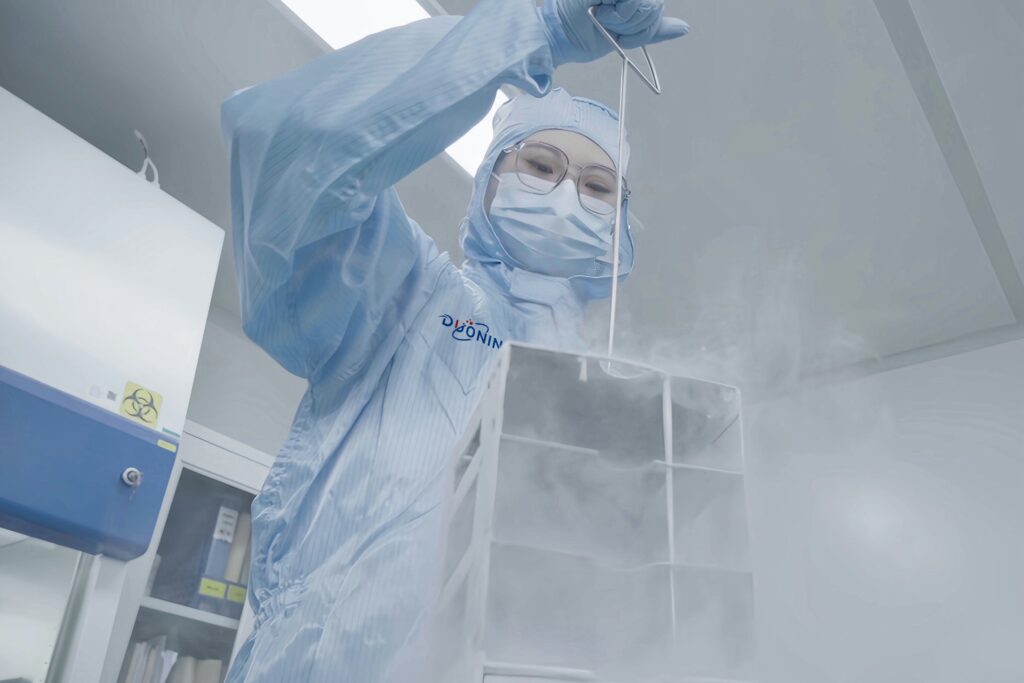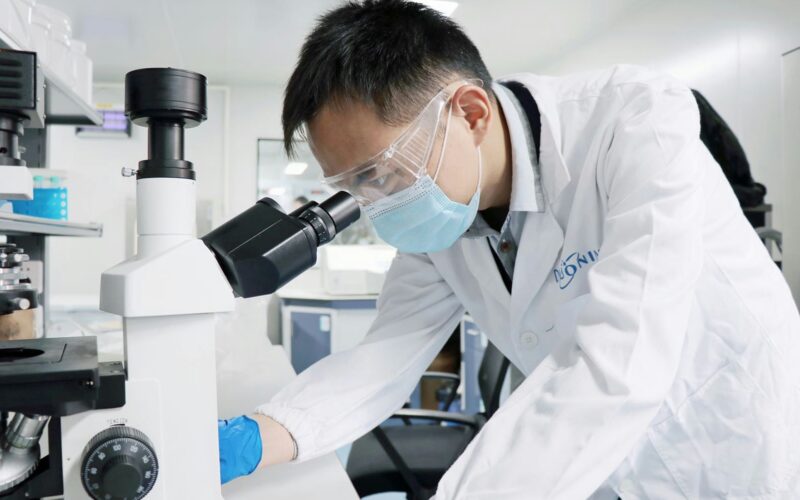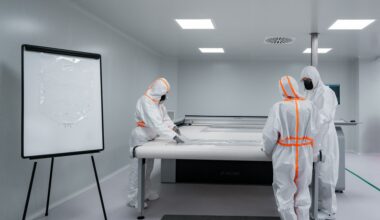Immuneering Corporation (NASDAQ:IMRX) is a clinical-stage oncology company headquartered in Cambridge, Massachusetts, that is pioneering a new class of cancer medicines known as Deep Cyclic Inhibitors. Founded with the mission of transforming the treatment of some of the world’s most lethal cancers, Immuneering is focused on developing therapies that are designed to keep patients alive longer and with fewer side effects. The company has built its scientific platform on the principle that intermittent, pulsatile inhibition of oncogenic pathways can deliver both durability and tolerability, a strategy that sets it apart from conventional approaches to cancer drug development.
At the center of Immuneering’s pipeline is atebimetinib (IMM-1-104), its lead oral once-daily Deep Cyclic Inhibitor of MEK. This candidate is being studied in advanced solid tumors driven by the MAPK pathway, including pancreatic cancer, one of the deadliest malignancies worldwide. Pancreatic cancer has long been a therapeutic graveyard, with standard-of-care regimens delivering limited survival benefits. By targeting MEK through deep cyclic inhibition, Immuneering aims to provide a more durable and tolerable treatment option that can potentially extend survival while minimizing toxicities. The company has already reported encouraging Phase 2a results in first-line pancreatic cancer, which highlight its potential to significantly outperform historical benchmarks for overall survival and progression-free survival.
Immuneering’s broader research and development strategy also includes IMM-6-415, another Deep Cyclic Inhibitor targeting the MAPK pathway with a differentiated profile designed to complement and expand upon the utility of atebimetinib. The company’s focus on the MAPK signaling pathway is strategic, as this pathway is pathologically activated in the majority of cancers, including nearly all pancreatic cancers and many lung and colorectal cancers. By developing inhibitors that modulate the pathway in novel ways, Immuneering seeks to overcome resistance mechanisms and deliver long-term patient benefits.
From its early beginnings, Immuneering has grown into a company recognized for its innovation in oncology drug development. Its work is guided by leading scientists and clinicians who understand the urgent need for new approaches in cancers with historically poor outcomes. The company’s commitment to science-driven solutions is matched by its focus on patient-centered outcomes, aiming to strike a balance between efficacy and safety that has eluded many targeted therapies in the past.
As a clinical-stage biotech, Immuneering continues to face the challenges of funding, execution, and competition. Yet it has consistently shown resilience in advancing its programs and presenting compelling data to the oncology community. With ongoing trials, planned pivotal studies, and an expanding pipeline, Immuneering stands at a critical juncture. If its Deep Cyclic Inhibitor approach succeeds in pivotal trials, it could reshape the treatment paradigm for cancers that have long resisted meaningful therapeutic progress.
The Bearish View Despite Extraordinary Headline Numbers
Immuneering Corporation recently announced what appears to be groundbreaking results from its Phase 2a trial of atebimetinib (IMM-1-104) in first-line pancreatic cancer, reporting 86% overall survival (OS) at nine months compared to the standard-of-care benchmark of ~47%. It also reported 53% progression-free survival (PFS) at nine months, versus ~29% for gemcitabine/nab-paclitaxel (mGnP) in historical data. While these headline figures sound extraordinary, the underlying context raises caution for investors considering Immuneering’s future.
Pancreatic cancer is one of the hardest tumors to treat, with dismal survival rates and an urgent need for new therapies. But Immuneering’s results are based on a tiny cohort of just 34 patients, without a head-to-head randomized comparator arm, and rely on extrapolations from historical trials. This creates significant uncertainty about how the data will translate in larger, controlled pivotal studies.

CHECK THIS OUT: Saudi Arabia Wants CEL-SCI (CVM)’s Multikine Now! and Aligos Therapeutics (ALGS) Doubles Cash to $122.9M.
Small Sample Size and Lack of Control Arm
One of the biggest red flags for investors is that Immuneering’s Phase 2a results are single-arm data, with comparisons drawn against historical benchmarks from the MPACT trial of gemcitabine/nab-paclitaxel. Cross-trial comparisons are notoriously unreliable, as patient populations, inclusion criteria, and baseline health status often differ.
With only 34 patients and a median follow-up of nine months, it is premature to conclude that atebimetinib provides a true survival benefit over existing therapies. Moreover, the median overall survival (mOS) has not yet been reached, meaning that the durability of the effect remains speculative. In larger pivotal studies, results may regress closer to the mean and fail to show statistically significant improvements.
Deep Cyclic Inhibition: Novel but Unproven
Immuneering’s entire value proposition rests on its Deep Cyclic Inhibitor (DCI) platform. The idea is that pulsatile inhibition of MEK can outsmart tumor adaptation and reduce side effects by allowing healthy cells to maintain transient signaling. While theoretically elegant, this concept is untested in late-stage trials.
The novelty of the DCI approach also introduces biological unknowns. The tolerability profile appears favorable so far, with no new safety signals and only neutropenia and anemia as common Grade 3 adverse events. But the long-term effects of cyclic MEK inhibition are unclear, particularly given that MEK is a critical node in the MAPK pathway that regulates essential cell functions. There is a risk that durability and safety will not hold up under longer treatment periods or in larger, more diverse patient populations.
Financial Fragility and Dilution Risk
Immuneering is burning cash aggressively. The company reported a net loss of $61 million in 2024, with research and development expenses climbing to $48 million. Its operations are sustained entirely through external financing. In August 2025, the company raised $25 million in a private placement, but even with this infusion, its cash runway is expected to only extend into 2026.
This means that additional capital raises are inevitable. For investors, this translates to dilution risk, especially as Immuneering’s stock remains volatile and its valuation speculative. Each financing round chips away at shareholder value, and terms may become increasingly unfavorable if biotech capital markets tighten or if Immuneering’s clinical data begins to disappoint.
Execution Risk and Regulatory Hurdles
Immuneering has stated it expects regulatory feedback on pivotal trial plans in Q4 2025, with hopes of initiating a Phase 3 trial by the end of 2025 and dosing patients by mid-2026. These timelines are ambitious and depend heavily on FDA and other regulators buying into the company’s early single-arm data. Regulators may insist on stricter, randomized controlled trial designs, delaying development and adding costs.
Furthermore, scaling from a 34-patient Phase 2a study to a global pivotal trial requires significant infrastructure, trial site recruitment, and operational excellence. As a small-cap biotech with limited resources and no commercial experience, Immuneering is exposed to execution failures, logistical delays, and potential trial setbacks.
Competitive Pressures in RAS/MAPK Oncology
Immuneering is not alone in targeting the MAPK pathway. Multiple companies, including industry giants, are developing KRAS, MEK, and ERK inhibitors for pancreatic and other cancers. Any competitor that secures approval first, or demonstrates superior efficacy and safety, could marginalize atebimetinib.
Moreover, the oncology community is increasingly favoring KRAS G12C inhibitors and combination strategies that are further along in development. For Immuneering to succeed commercially, it must not only prove that its drug works but also show that it is competitive against a crowded pipeline of therapies.
Market Sentiment and Overreliance on Interim Data
Investor excitement around small sample “extraordinary” results can quickly reverse if larger trials fail to replicate outcomes. Immuneering has already shown 94% six-month OS in earlier data, now updated to 86% at nine months. While still impressive, this decline underscores the volatility of survival rates in small cohorts.
If future data updates flatten or fall short of expectations, Immuneering’s stock could face sharp downward corrections, as speculative biotech valuations are often highly sensitive to incremental news.
Going Concern and Long-Term Viability
In its 2024 filings, Immuneering itself acknowledged substantial doubt about its ability to continue as a going concern without additional financing. This stark warning reflects the reality that the company has no approved products, no revenue streams, and is fully dependent on external capital. Unless it successfully raises more funds while simultaneously advancing its pipeline, there is a real risk of financial distress or downsizing.
Conclusion: Why Investors Should Be Bearish
Immuneering’s September 2025 update presents eye-catching survival statistics that, on the surface, suggest atebimetinib could transform the treatment of pancreatic cancer. But beneath the headlines lies a much riskier picture. The results are derived from a very small, single-arm trial with extrapolated benchmarks, the Deep Cyclic Inhibitor platform remains unproven, and the company faces steep financial and operational challenges.
For investors, the downside risks include clinical failure in larger studies, regulatory delays, competitive displacement, and relentless dilution. While the promise of extending survival in pancreatic cancer is scientifically compelling, the path from small early trials to market approval is fraught with obstacles. In this light, Immuneering represents a highly speculative investment where optimism may already be priced in, leaving investors exposed to outsized downside if expectations are not met.
READ ALSO: Exact Sciences (EXAS) Just Made Cancer Detection 100x Easier! and Soleno Therapeutics (SLNO): The Biotech Company That Could Make You Rich.








